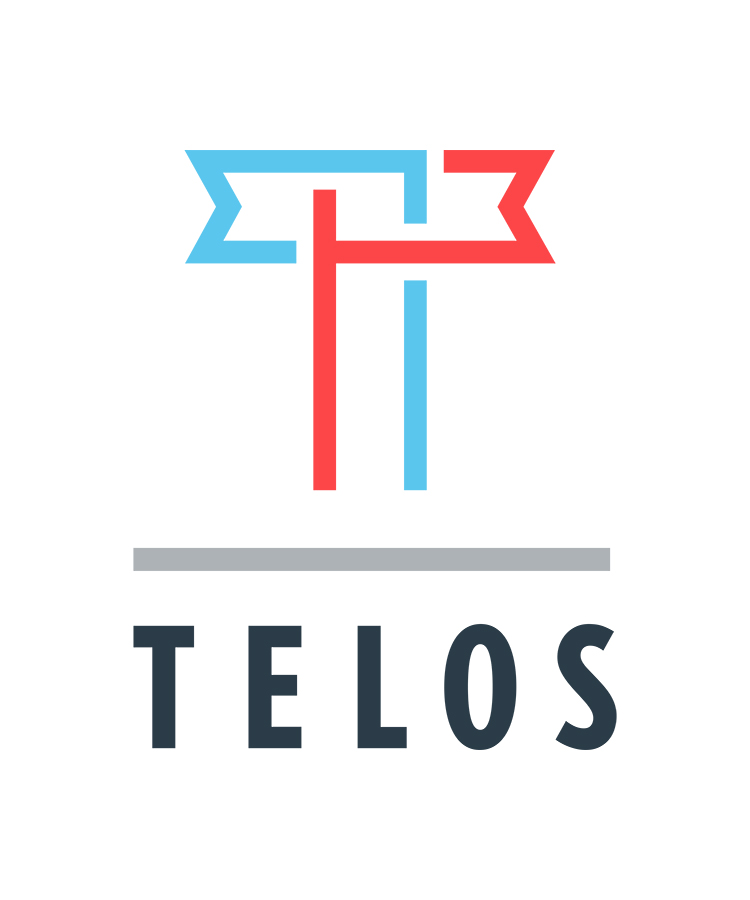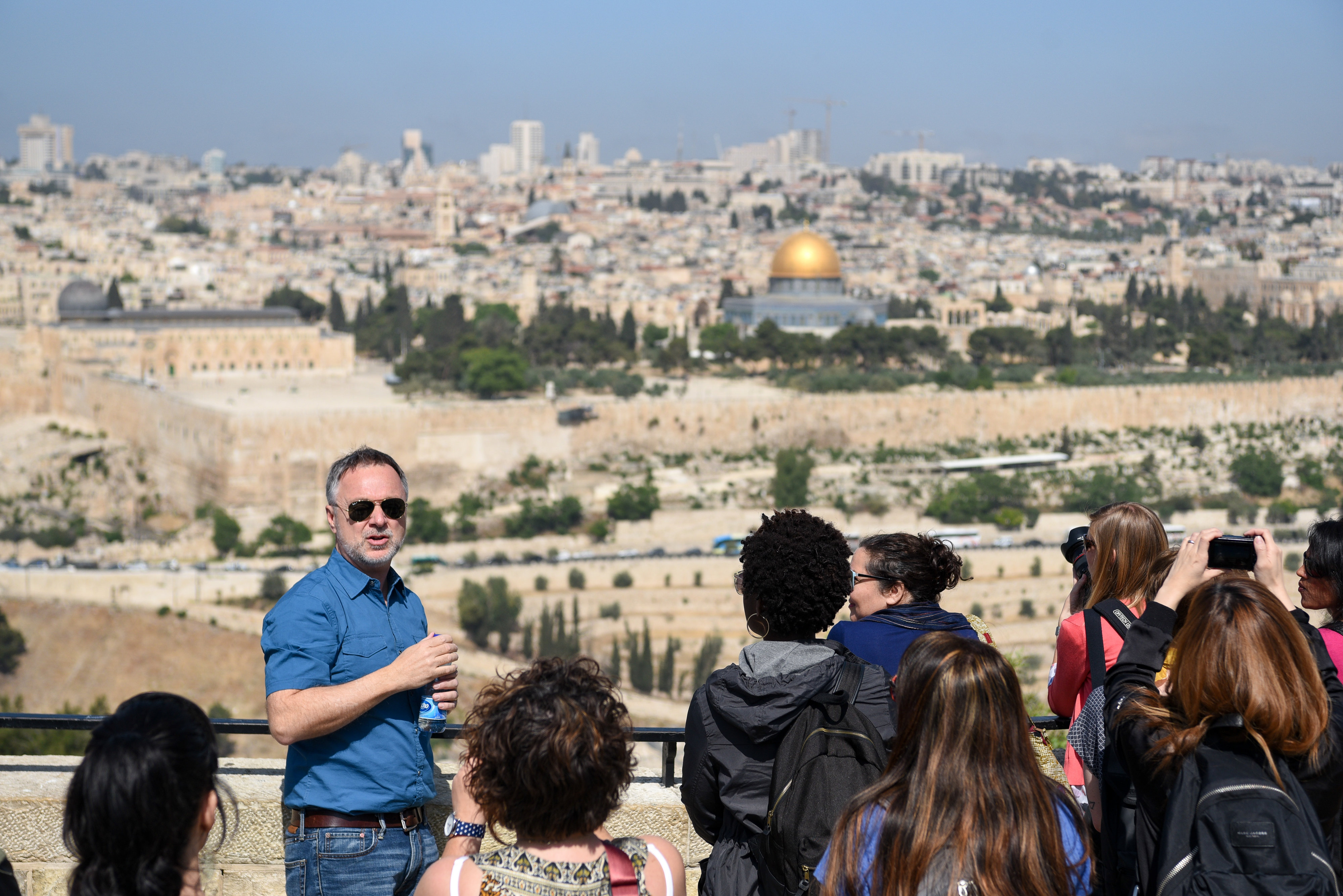The Multiple Voices of Jerusalem
By Todd Deatherage
Photo by Christine Anderson
Each time I visit Jerusalem I’m struck by the way it’s a jumble of cultures, religions, and narratives. Layers of history, ruins of empires that once claimed it. And as a city of countless Jewish, Christian and Muslim shrines and holy places, it feels like God’s little acre.
The complexity of Jerusalem can be overwhelming, but if you visit in the posture of a learner and open yourself up to hearing the hopes and dreams and struggles of those who live there, you begin to understand the humility that is a prerequisite to doing anything that might disturb the uneasy balance that holds all this together.
Unfortunately, humility is not an American strong suit. And the kind that respects the multiple voices of Jerusalem was definitely not on display yesterday in Washington when the Trump Administration announced a rhetorical reversal of longtime U.S. policy in recognizing Jerusalem as the capital of Israel.
Since 1995, U.S. law has required the American embassy to Israel be relocated from Tel Aviv to Jerusalem. Given that the Israelis have made Jerusalem their capital city since the founding of the state, this would at first blush seem uncontroversial. But of course in the Israeli-Palestinian conflict, first blushes rarely capture complexity, and most things are controversial.
On the one hand, Jerusalem is the capital of the modern State of Israel, the cradle of Jewish civilization, and the holiest city in Judaism. So it’s understandable when some ask why this shift in the American position is such a big deal. If it’s truly no big deal, why did Presidents Clinton, Bush and Obama each dodge the 1995 law and every six months exercise its waiver clause which allowed them to refuse to comply based on U.S. national interests?
Each of those Presidents took different approaches to solving the conflict in the Middle East, but they each supported and led diplomatic efforts to solve it along the lines of a two state solution. This has been the official position not just of the US, but of the United Nations, the European Union, the Arab League, and, most importantly, the Israelis and Palestinians for many years now. Achieving a negotiated end to the conflict and create a two state solution requires arriving at agreement around four key issues: borders, refugees, security, and Jerusalem.
Everyone who has worked on this has their own opinion about which is the most challenging to solve, but most consider Jerusalem the hardest. Both national groups, Israelis and Palestinians, claim the city as their capital. In the asymmetrical power dynamic that exists, the Israelis have the upper hand as Jerusalem has functioned as the seat of their government for seventy years, while the Palestinians aspire to seat their own government there in the eastern part of the city in the context of the birth of a Palestinian state.
Added to the complexity is the obvious fact that Jerusalem is not just a modern city claimed by two competing national groups, but it is also a historic and holy city. It is religiously and culturally significant to Jews, Christians and Muslims, and contains holy sites that are deeply resonant for millions of people around the world.
And the Palestinian people have their own deep and historic connection to the city. If you want to read a beautiful memoir of an Arab family with Jerusalem roots going back to the 7th century, check out Once Upon A Country by Sari Nusseibeh.
So “solving” Jerusalem is no small thing. But having worked on and around this issue in and out of government for many years now, I’m convinced there are solutions available to those leaders who genuinely want peace. My own understanding has been influenced by local Jerusalemites like Danny Seidemann who believe that the way he as a Jewish Israeli citizen of Jerusalem best secures for himself, his family, and his nation a safe and secure future is to work for a Jerusalem that is allowed to speak in its multiple voices, Israeli and Palestinian, Jewish, Christian and Muslim.
That kind of Jerusalem not only offers a solution to the conflict which currently plagues it, but can serve as a model for Abrahamic co-existence and an example of creating peace and security built on mutual respect rather than domination. Respect for all the residents of Jerusalem and honest efforts to honor their communal, religious, and national narratives can serve as the counterfactual to the “clash of civilizations” story so many there and here want to participate in.
And so I have deep concerns about the mixed decision of the Trump Administration. In the near term, it’s not clear how violent the reaction will be. Hopefully it won’t be violent at all, and I think it’s important to say that the threat of a violent response is by itself an insufficient reason not to do the right thing. My reservations about this decision are about more than the real threat of a violent backlash. To me it is clear that this diminishes US influence and our ability to lead diplomatic efforts to end the conflict. It also strengthens radicals and makes any effort to achieve a negotiated peace harder.
In attempting to divine the reasons for this action, I’ve settled on three possibilities:
- I have not read The Art of the Deal but it’s clear the President fancies himself a deal maker and he has an unorthodox approach to forcing people to accept his position. It could be that this is not some one-off piece of incoherent policy shifting, but a provocative move which he imagines may upend a badly broken status quo and force the Palestinians into a deal while providing him with future leverage with the Israelis.
- Ideological opponents of the two state solution, joined by those with limited expertise in the issue, have ascended to positions of authority and are using their influence to drive one more nail in the coffin of a negotiated end to the conflict. Given the U.S. Ambassador to Israel’s long and public opposition to a two state solution, and the influence of others in and outside the Administration, this seems plausible.
- When seeking answers to U.S. actions regarding the Israeli-Palestinian conflict, it always pays to look to domestic political calculations first. And this may well be the latest example of that. In May of this year, when President Trump was faced with his first decision about whether to move the embassy, 60 evangelical leaders with close ties to the Administration signed a public letter urging that “the time has come, at long last, to uphold American law by moving the U.S. Embassy to Israel’s eternal indivisible capital city of Jerusalem.” It would be hard to underestimate how deeply resonant this issue is for men like James Dobson, Tony Perkins, John Hagee, and Gary Bauer. And while their influence within American evangelicalism is limited, it is not minimal nor are their views unrepresentative of how a number of evangelicals think.
Johnnie Moore, a member of the President’s faith advisory committee, said of the President’s decision, “Evangelicals in every corner of the United States will be ecstatic” He continued by noting that the only issue more important to these evangelical leaders was the appointment of federal judges. “In our various meetings with the White House, this issue has always come up,” Moore told NPR, “and it has always been an extended discussion around the table. I mean, at the heart of the relationship between the United States and Israel has been the friendship between evangelical Christians and the Jewish people.
The President has a firm grip on these leaders and their constituencies, so today’s action may not have been politically necessary, but given how much this core constituency of the President’s cares about this, it may have just been too difficult to explain why not to do it.
Which is why I am convinced that our work at Telos is critical. As a community of peacemakers committed to security, dignity and freedom for Israelis and Palestinians alike, who are learning to speak, create and act in support of diplomacy that allows for the flourishing of all, our voices and actions are needed. And as we act, we must remember the complexity of the reality of Jerusalem, the humility required to honor the hopes and dreams of our Israeli and Palestinian friends, and the necessity of allowing their city to speak in its multiple voices.

